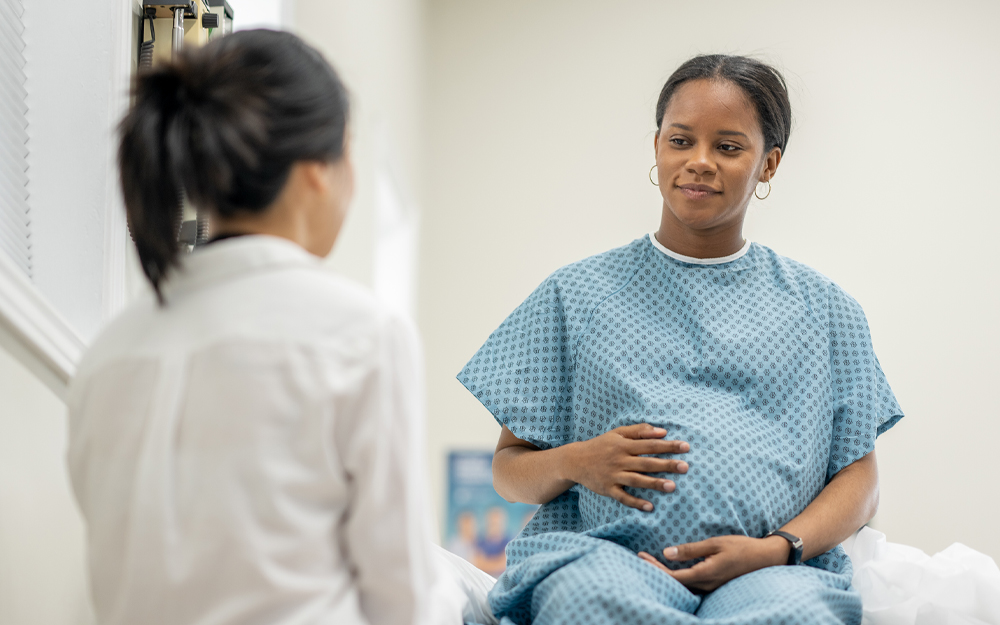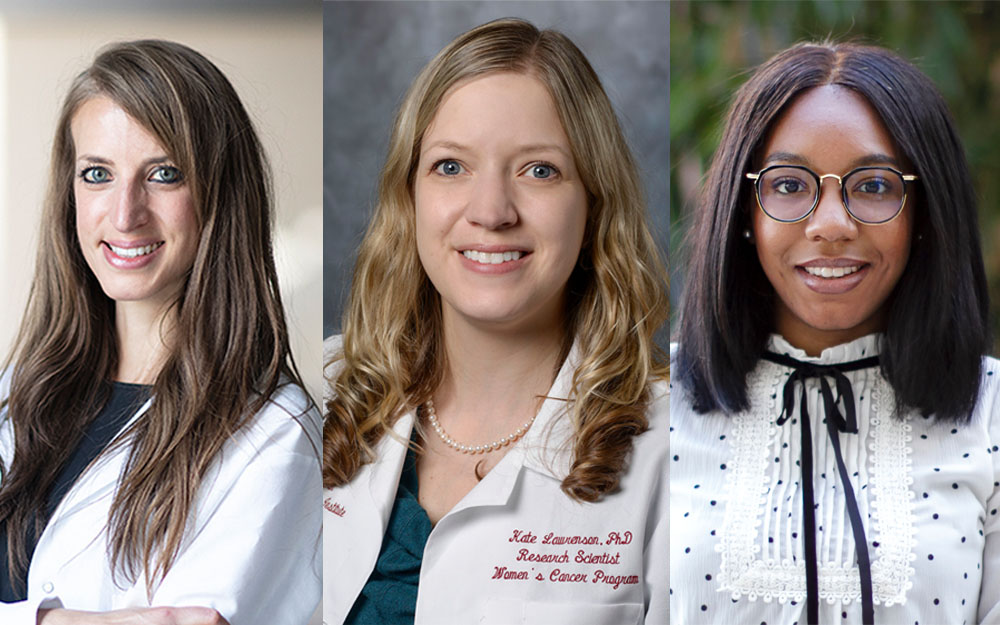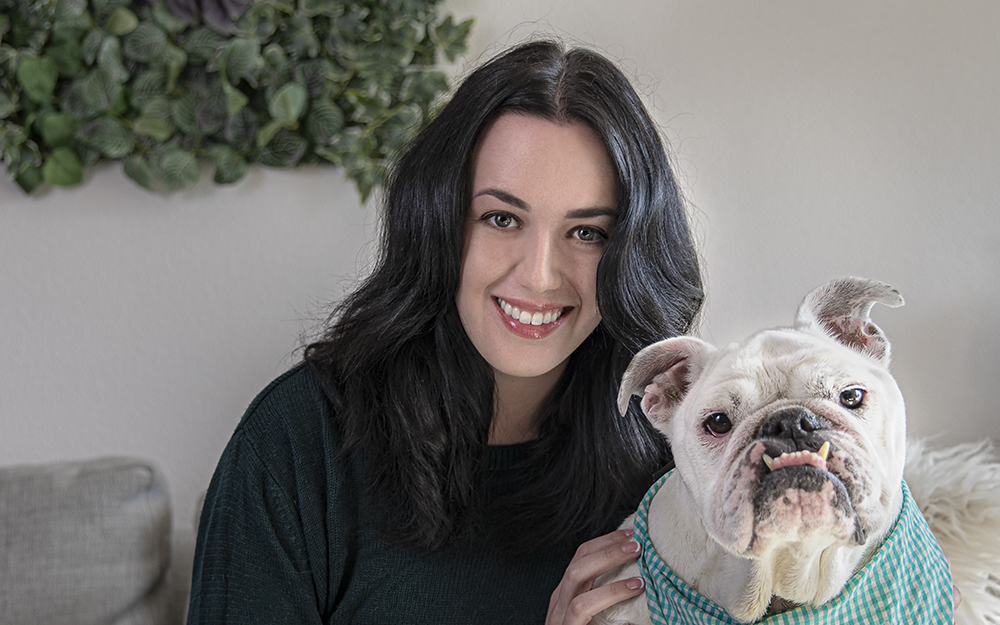Understanding Prenatal Genetic Testing and Diagnostics
Date
July 6, 2023

Date
July 6, 2023
Credits
Medical providers featured in this article


In Brief
{{cta-block}}
When you discover you have a baby on the way, you may experience overwhelming joy followed closely by fear. Will the baby be healthy? Will I pass along undetected genetic mutations? Will we be able to raise our child into adulthood?
“Fortunately, with advances in prenatal screening and diagnosis, parents-to-be can get answers to many pressing questions regarding their pregnancy well before delivery,” said John Williams, MD, a maternal-fetal medicine specialist at Cedars-Sinai’s Prenatal Diagnosis Center. “Prenatal testing should be offered to every woman, regardless of age or family history.”
To learn more about how prenatal genetic counseling and diagnosis can maximize the health of your pregnancy, check out these frequently asked questions.
“Every patient should receive prenatal counseling before they get any type of prenatal screening and diagnostic tests, so they better understand the risks and benefits of these tests. Today’s prenatal diagnostic techniques not only provide highly detailed and accurate information, but they’re also very safe.”
What are prenatal screening and diagnosis?
Historically, parents-to-be had to wait until their babies were born to learn whether they had passed down any genetic anomalies. Today, people get detailed answers about the health of their baby long before their bundle of joy is scheduled to arrive—and it all begins with prenatal genetic counseling.
During your first visit, the genetic counselor will ask about your family and personal medical history. They will review information about miscarriages, stillbirths and children who have died young in either partner’s family.
You’ll learn about your options for testing, both before and during pregnancy, and discuss genetic information that’s relevant to your unique circumstances. Sometimes, patients who know they’re at risk of passing down a particular genetic condition will undergo prenatal genetic counseling and screening before conception.
“Every patient should receive prenatal counseling before they get any type of prenatal screening or diagnostic tests, so they better understand the risks and benefits of these tests,” said Tania Esakoff, MD, a maternal-fetal medicine specialist at Cedars-Sinai. “Today’s prenatal diagnostic techniques not only provide highly detailed and accurate information, they’re also very safe.”
Who is a candidate for prenatal genetic counseling?
Women who are pregnant and those who are not yet pregnant but who may want to become pregnant in the future are candidates for prenatal genetic counseling. The goal of prenatal genetic counseling is to help people learn more about their likelihood of having a baby with a genetic disorder.
According to Esakoff, prenatal counseling is especially important for parents-to-be who fall into one of the following categories:
- People who have a child with a genetic condition and who are considering another pregnancy
- People who have a sibling or close family member with developmental delays or birth defects
- People who have certain ethnic backgrounds that are linked to a higher risk of specific genetic mutations
- Women who have had a concerning exposure during their pregnancy, such as medications, infections and environmental exposures
- Women who have certain health conditions that may affect a fetus
- Women 35 and older who are considering becoming pregnant
{{providers}}
What is the difference between prenatal screening and prenatal diagnosis?
Prenatal screening and diagnosis are necessarily linked, and both can help guide patients’ decisions regarding their pregnancy. Prenatal screening is noninvasive, meaning women can get answers about their pregnancy with a simple blood test or ultrasound. Prenatal diagnosis requires obtaining a sample of cells from the pregnancy.
“Prenatal screening and diagnostic tests assess a patient’s risk of having a child with an abnormality,” Williams said.
Noninvasive prenatal screening tests, or NIPT, include:
- Blood tests: NIPT blood tests examine the mother’s blood for DNA from the baby that may have a chromosomal abnormality, such as a missing or extra chromosome. “We can learn a lot about a pregnancy from a simple blood test, including whether the mother is at high risk of carrying a baby with Down syndrome or trisomy 13,” said Esakoff.
- Ultrasounds: With today’s advanced ultrasound technology, doctors are better equipped to pick up a birth defect through ultrasonography. “During the 20-week anatomy scan, we evaluate the baby from head to toe, thoroughly examining every organ system and structure in the body,” Esakoff said.
Unfortunately, there are more than 1,000 chromosome abnormalities that can affect a growing baby. “NIPT only picks up a third of those anomalies because the test only targets specific chromosomal differences,” Williams said. “The rest can only be picked up through diagnostic testing.”
Diagnostic pregnancy tests include:
- Chorionic villus sampling (CVS): CVS takes a sample of cells from the placenta, and it can be performed as early as 10 weeks into the pregnancy. “CVS is a fully diagnostic test, so we can detect any chromosomal abnormality with more than 99% accuracy,” Williams said.
- Amniocentesis: During amniocentesis, a doctor withdraws fluid from the amniotic sac that surrounds the fetus and tests the fluid for genetic abnormalities. It’s more than 99% accurate.
- Percutaneous umbilical blood sampling (PUBS): PUBS tests blood from the baby’s umbilical cord to determine if there are chromosomal or genetic issues. PUBS is generally only done when other procedures, such as CVS or amniocentesis, are not possible or when fetal blood cells are required for diagnostic testing—and it’s only performed after 18 weeks into the pregnancy.
What happens if doctors detect a genetic anomaly?
Unfortunately, for the vast majority of genetic anomalies, doctors can’t correct the issue. But they can connect the parents-to-be with a variety of health professionals to help them make decisions about the pregnancy and learn how to prepare for a child with special needs.
Parents who are carrying a baby with a condition like Down syndrome, for example, may benefit from psychological services and early intervention for their newborn. Those who have a baby with structural defects, such as a congenital heart defect or intestinal obstruction, can make plans with their medical team to correct the problem when the baby arrives.
“There are also a few disorders that doctors can treat in utero,” Williams said. “One technique is similar to a bone marrow transplant: Doctors inject cells into the umbilical vein, and the cells make their way into the fetus’ system, where they replace defective cells.”
Whether or not you’re carrying a child who has a genetic anomaly, knowledge is power.





